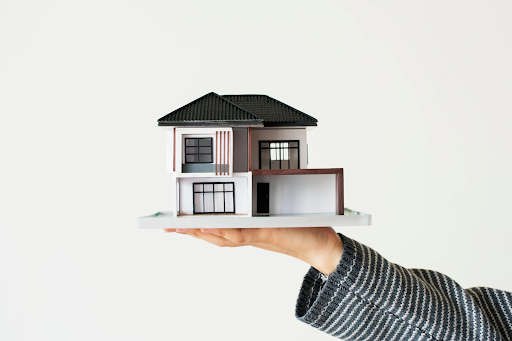Inflation makes housing prices rise together with other prices of goods and services. We know that the economy tends to be dynamic. It brings changes and updates from time to time while new pressures are also there. As prices for everything are rising rapidly, so are housing prices. Therefore more and more people are becoming interested in the question “how much should I have in emergency savings?” or “where to find money for purchasing a house?”. If you plan to buy a house soon, here is what you need to take into account.
Inflation: What Is It?
The inflation rate demonstrates how prices of goods and services rise over time. Every consumer wants to avoid inflation, but it’s impossible in real life. Inflation is the main factor that causes your funds to cost less over time.
All the money you earn or have will be worth less than it used to be when you initially earned it. Inflation can be good from a macro view, though. A certain percentage of inflation needs to be in a healthy economy. Consumers are encouraged to spend money and purchase services, goods, and homes as prices increase from time to time.
The Effect of Inflation on Housing Prices
Housing is a good asset.
During inflation, housing is considered a good asset. As the rates of inflation increase, so do the value of your home. The sum you pay for your home might stay the same, provided that you have a good interest rate. However, the value of your home may increase. The down payment of at least 20 percent should be paid when you are about to become a homeowner. Those who have a mortgage with a fixed interest rate will benefit the most.
Inflation isn’t here forever.
Continued inflation is particularly harmful to the economy in general and to consumers in particular. Americans with fixed incomes are affected most dramatically. Yet, it can’t be forever on the rise. Inflation finishes through monetary policy to lower the currency supply or through devaluation.
Demand and supply.
Prices are impacted by demand and supply. An oversupply of housing will decrease home prices even if inflation is rather high. Rental expenses and interest rates will increase together with the rates of inflation. Consumers won’t want to take out mortgages if their rates increase too fast. Home prices will decrease while demand will boost.
Interest rates will rise.
As inflation rates go up, the home loan interest will also boost. Every investor aims to earn more than they put in. Thus, the investment needs to earn at least more than the current inflation rate. Mortgages usually come with fixed interest rates, so they aren’t very attractive to potential investors. So, investors will decide to pull out of bonds and use their funds for stocks offering a higher return in exchange for higher risk. It increases the bond yields, trying to win back the attention of investors. Investors will agree to buy in only when they can get a greater return than the projected inflation rate.
How to Get the Best Deal on Mortgage during Uncertain Times
Inflation is tightly connected with mortgage rates. It would help if you considered this connection when you are thinking about making a home purchase. The recent Redfin survey proves that inflation impacts 73 percent of homebuyers and sellers.
Twenty-nine percent of respondents said inflation made them delay their homebuying plans, and 11 percent of consumers had to cancel their homebuying plans. The survey questioned 1,500 U.S. residents who are planning to sell or purchase a home in the next 12 months.
As you can see, higher prices on services and goods make the majority of people change their plans or postpone them. Mortgage interest rates increased to 7% this year which boosted the cost of the home purchase.
Experts can’t guarantee that inflation rates will decrease in 2023. Here are some tips to help you find the best interest rates on your mortgage during these challenging times:
1. Compare terms.
One of the best tips is to shop around. You may get one offer from the first crediting company. But the next company might offer better interest rates. Getting loan estimates at several lending institutions is beneficial and may save you a lot of cash in the end. Try shopping around for the rates on the same day to get loan estimates. Compare the APR, the terms, and lending conditions as it impacts the total cost of borrowing.
2. Don’t rush with your decision.
When you are thinking of buying a home, you may be scared of inflation. The inflation rates keep on going up, so you may feel forced to accept the first offer. It may seem that housing prices will only increase next year. In reality, you shouldn’t rush a house purchase. It is a big-ticket purchase, after all. Don’t let market fluctuations distract you from what you are looking for.
3. Stay within your budget.
Are you sure you can afford a regular monthly payment on your mortgage? Everything might happen along the way. You might lose employment and become unable to pay monthly bills. It isn’t the most pleasant scenario, but it’s worth thinking about. Your aim is to protect yourself from unforeseen financial disruptions and ensure you can afford to pay down your mortgage. Choose a monthly payment you know you can afford and don’t accept the top sum you are approved for.
The Bottom Line
Inflation is what everyone seems to be talking about these days. It is in newspapers and web platforms. It is what impacts not only the prices of services and goods but also the housing market. Those who are planning to purchase a home may even see a larger impact on inflation rates.

































